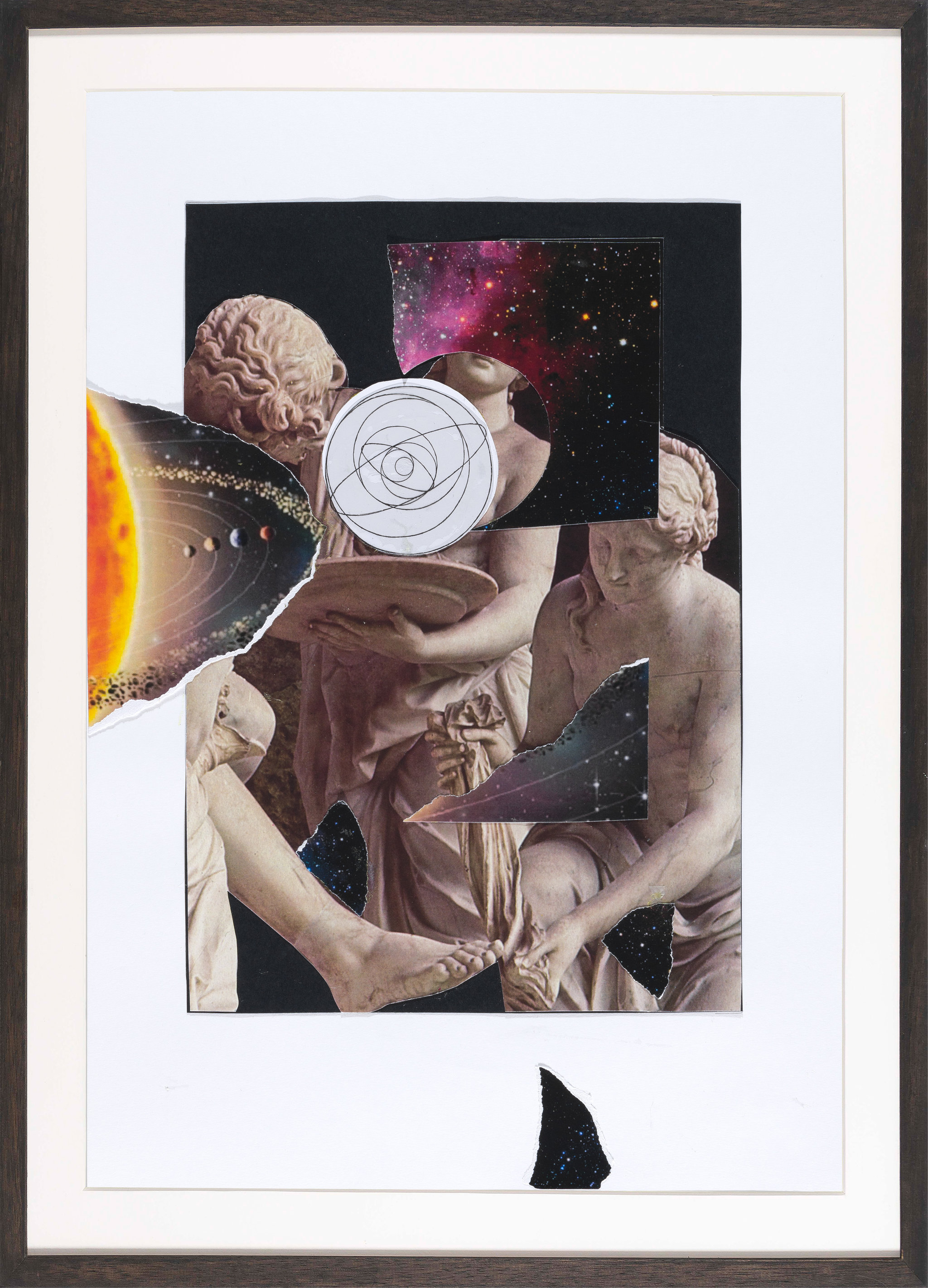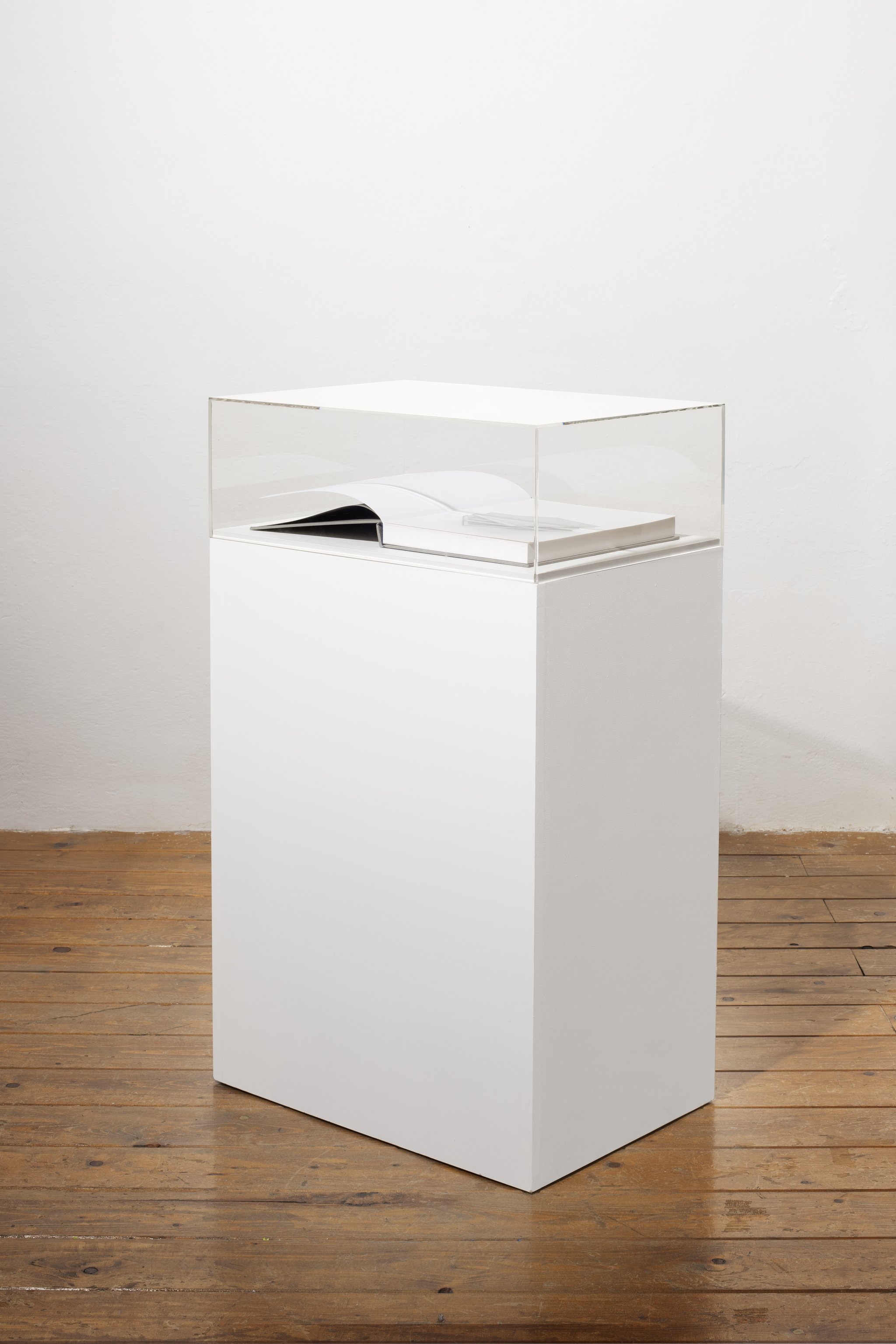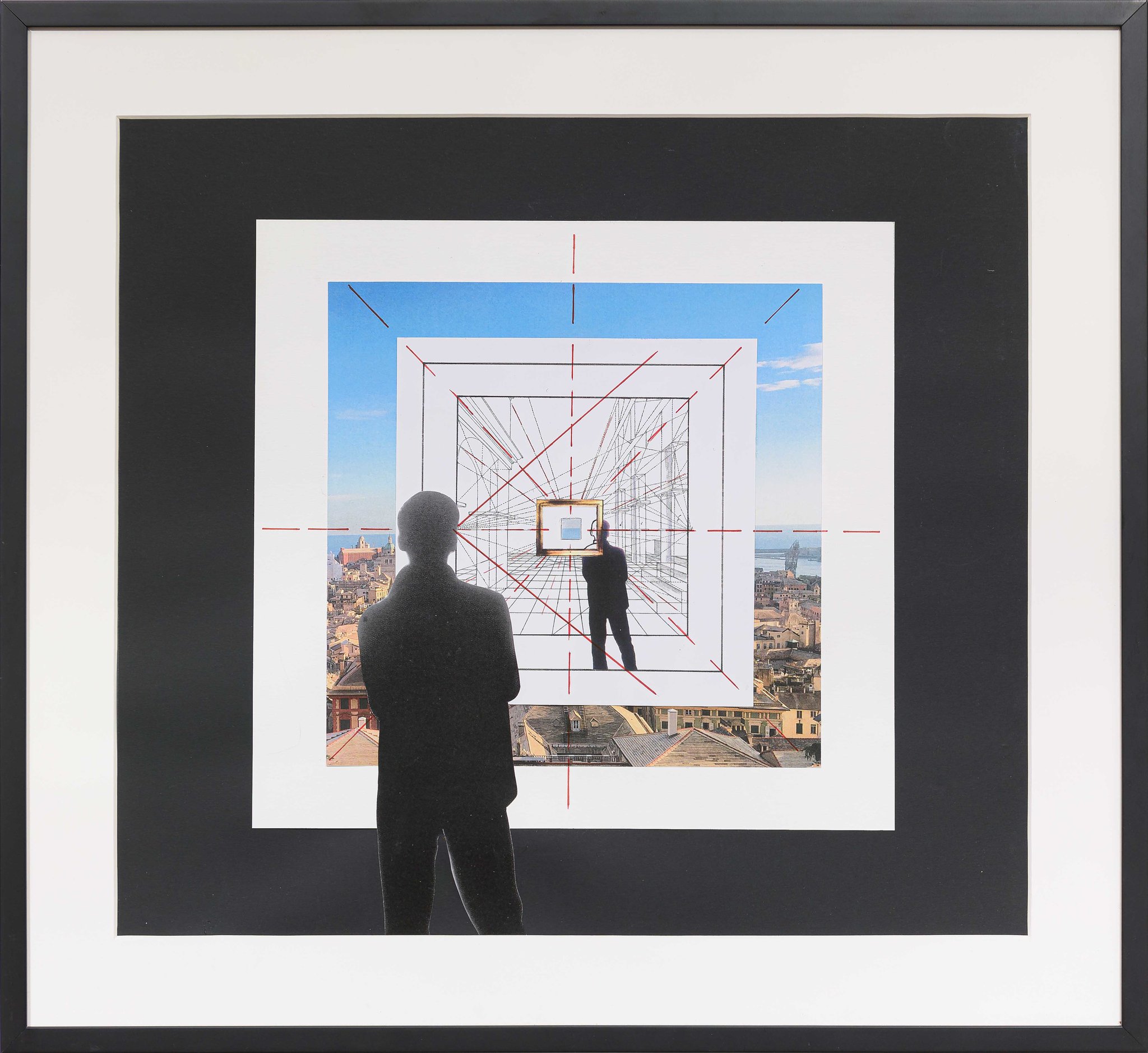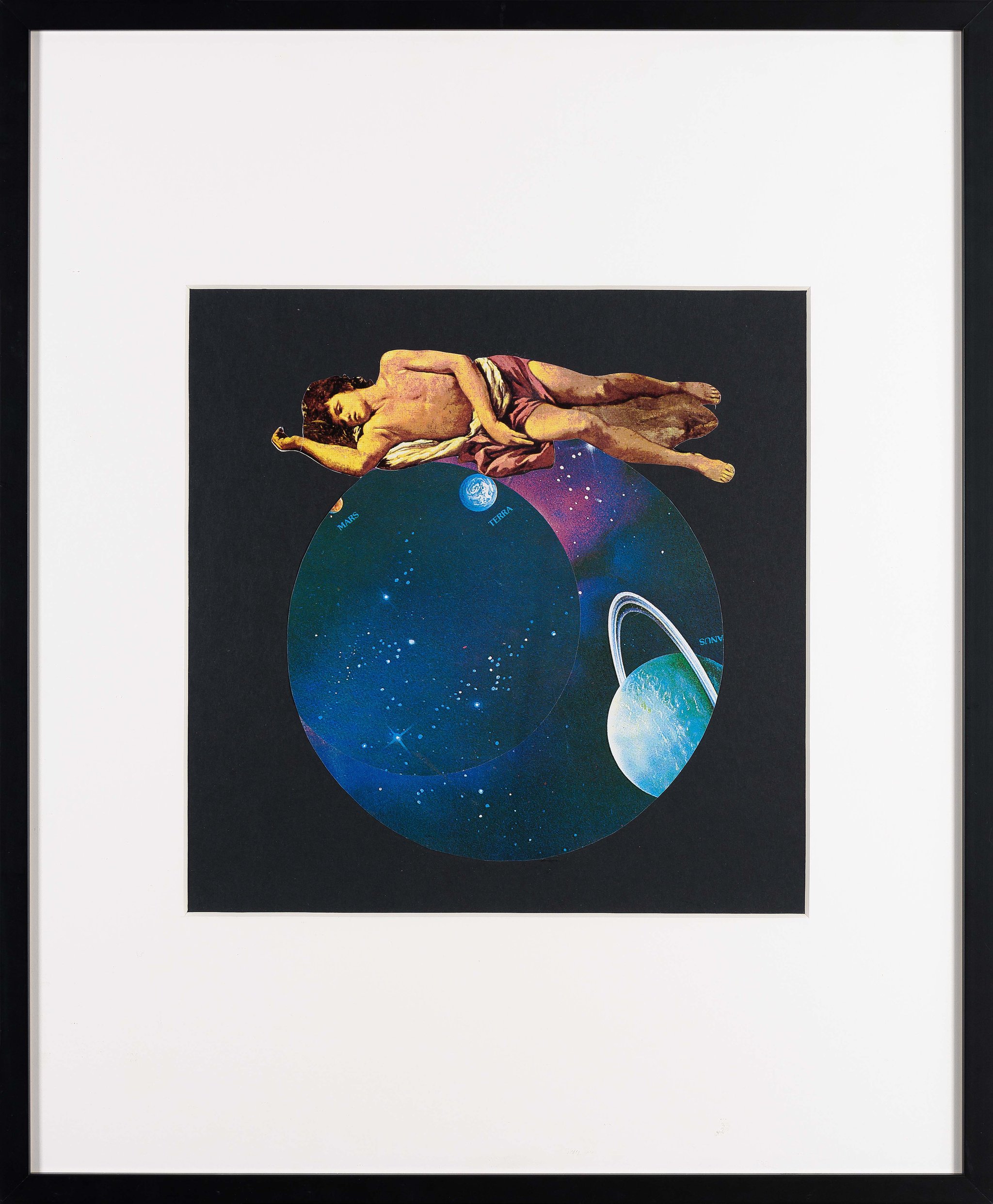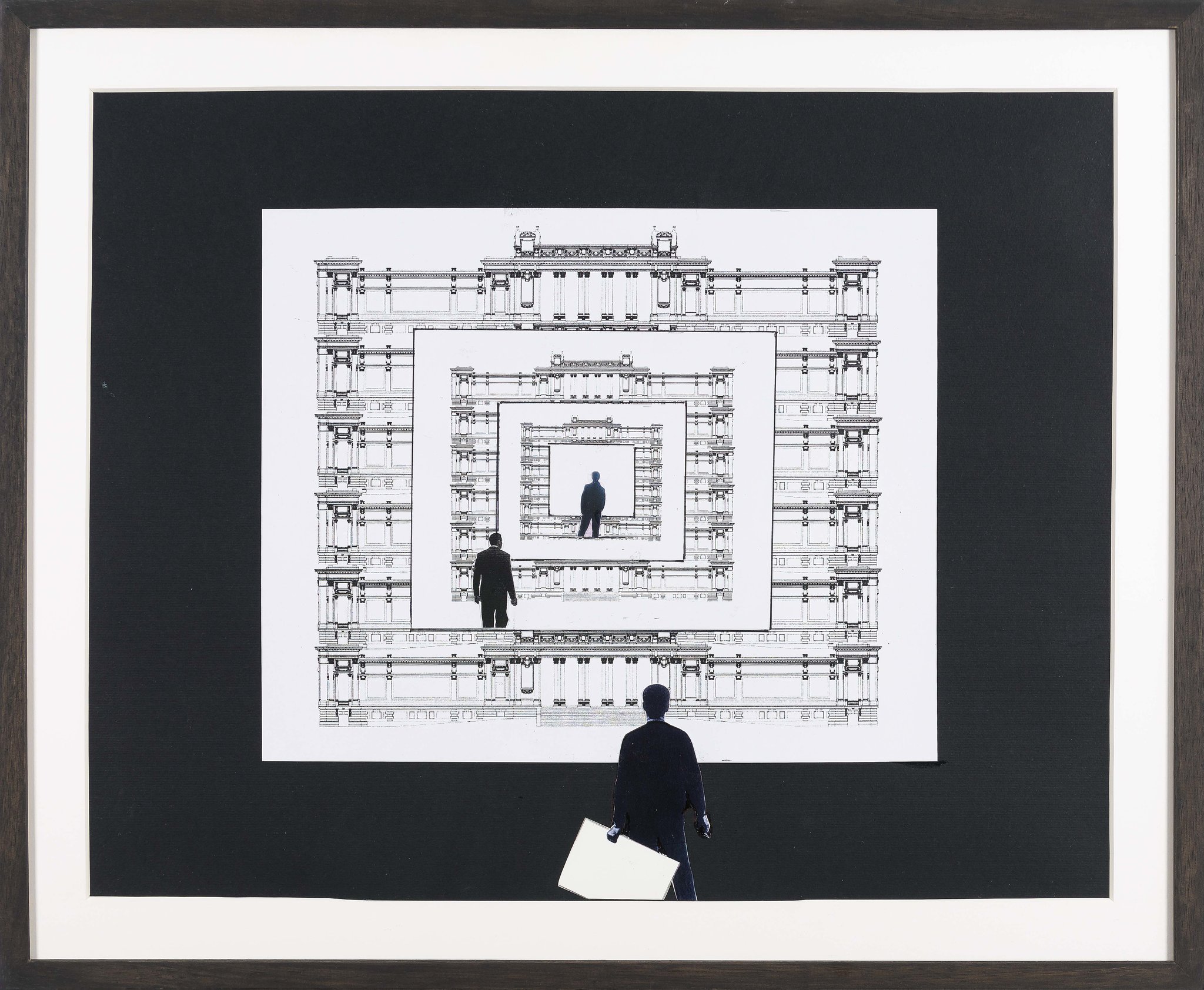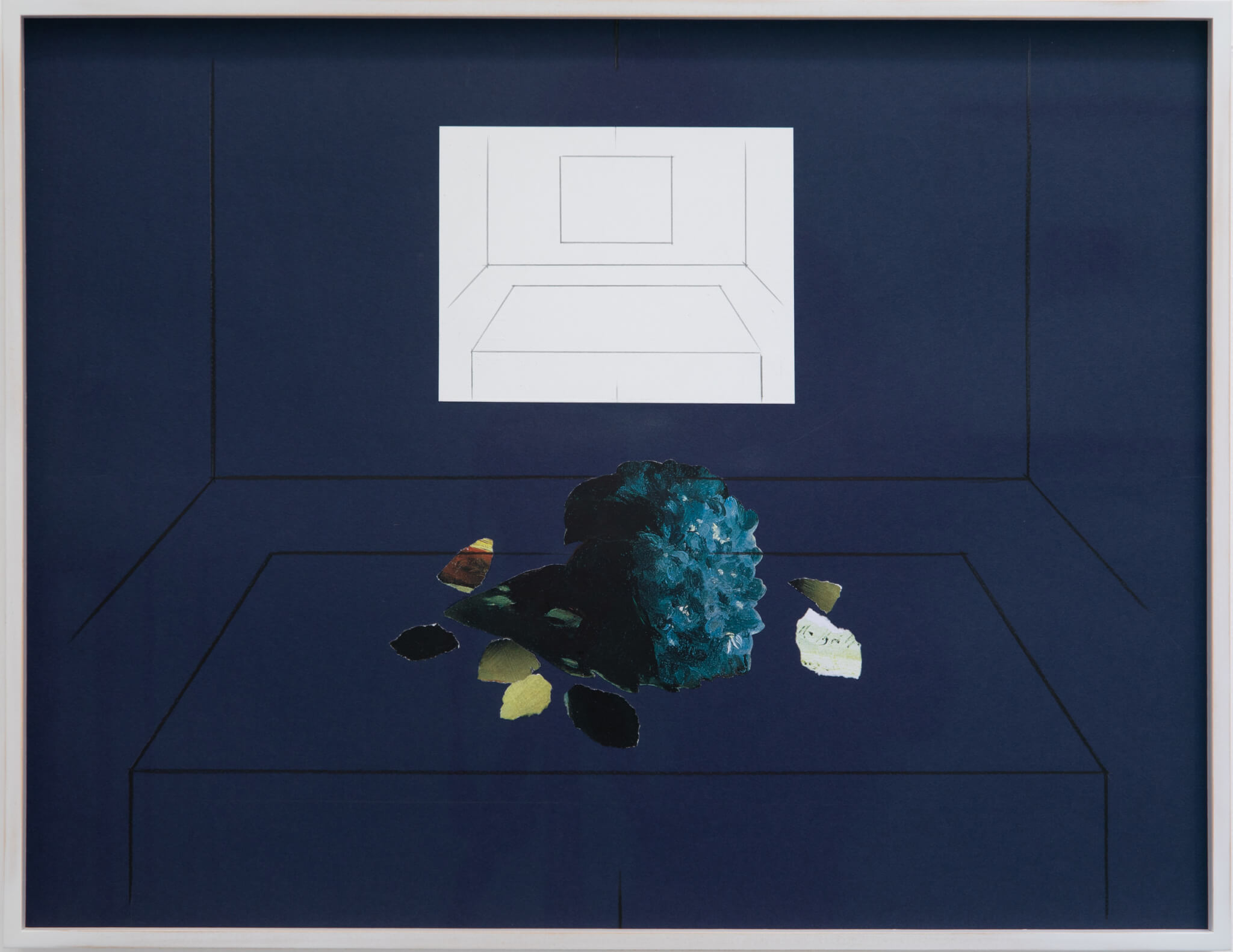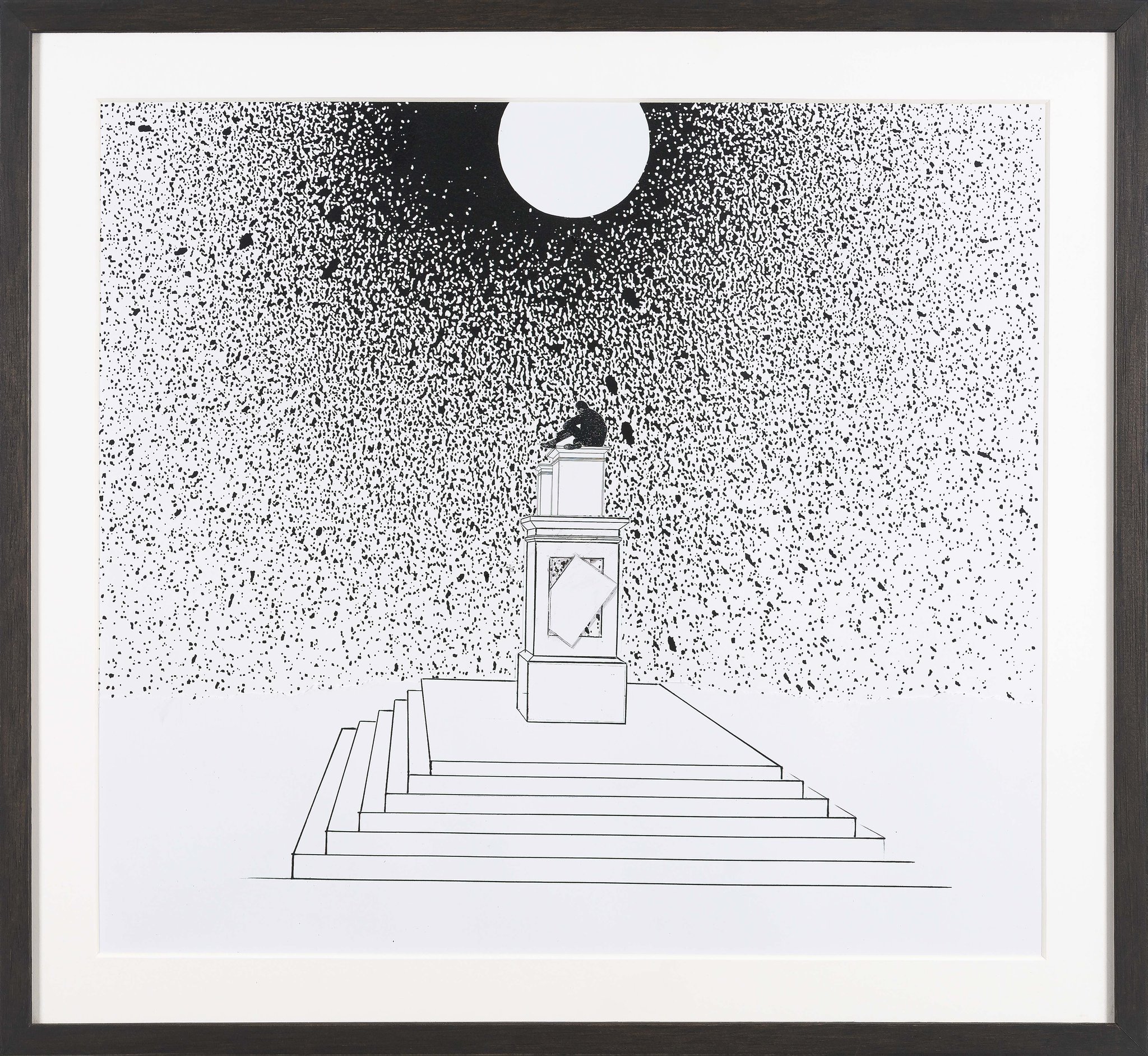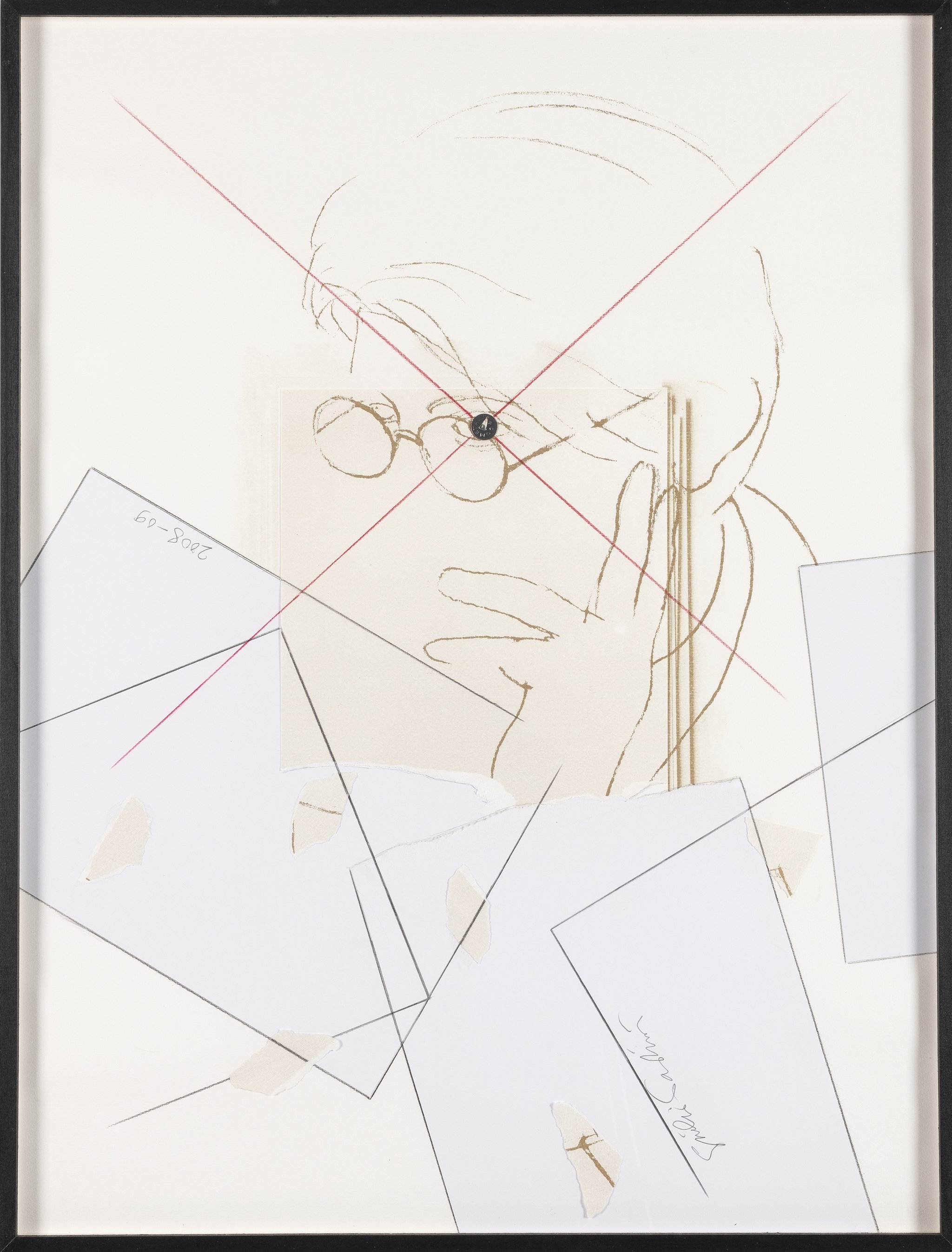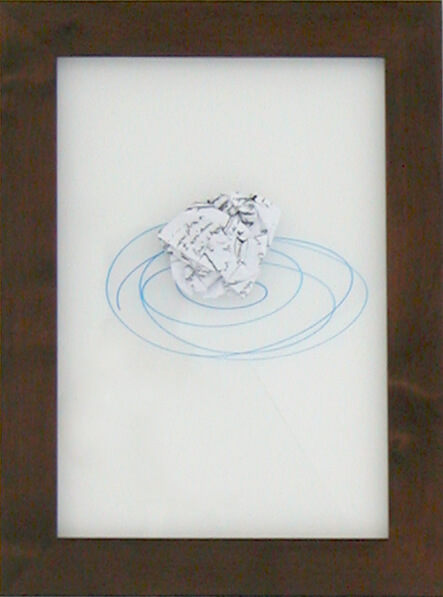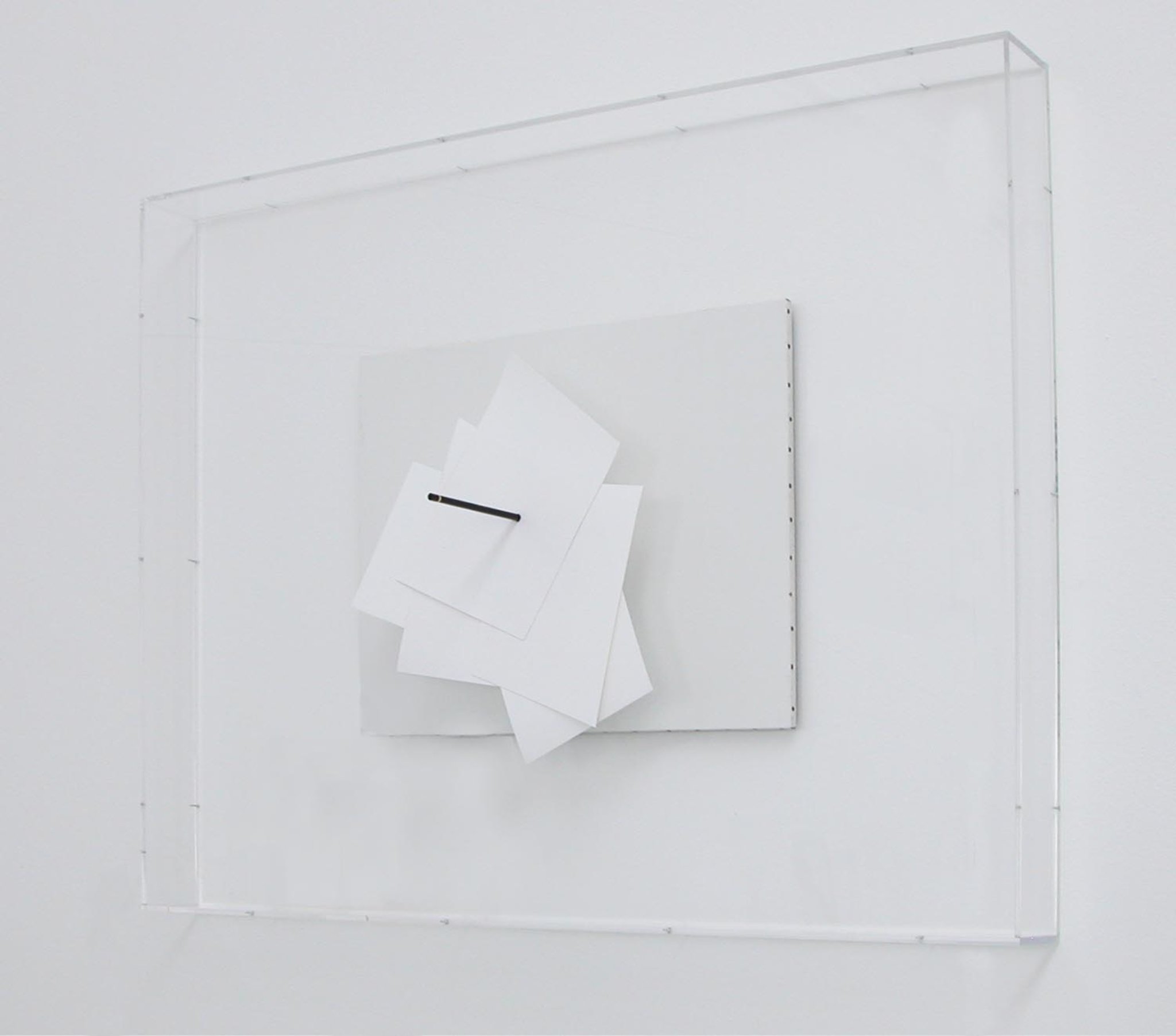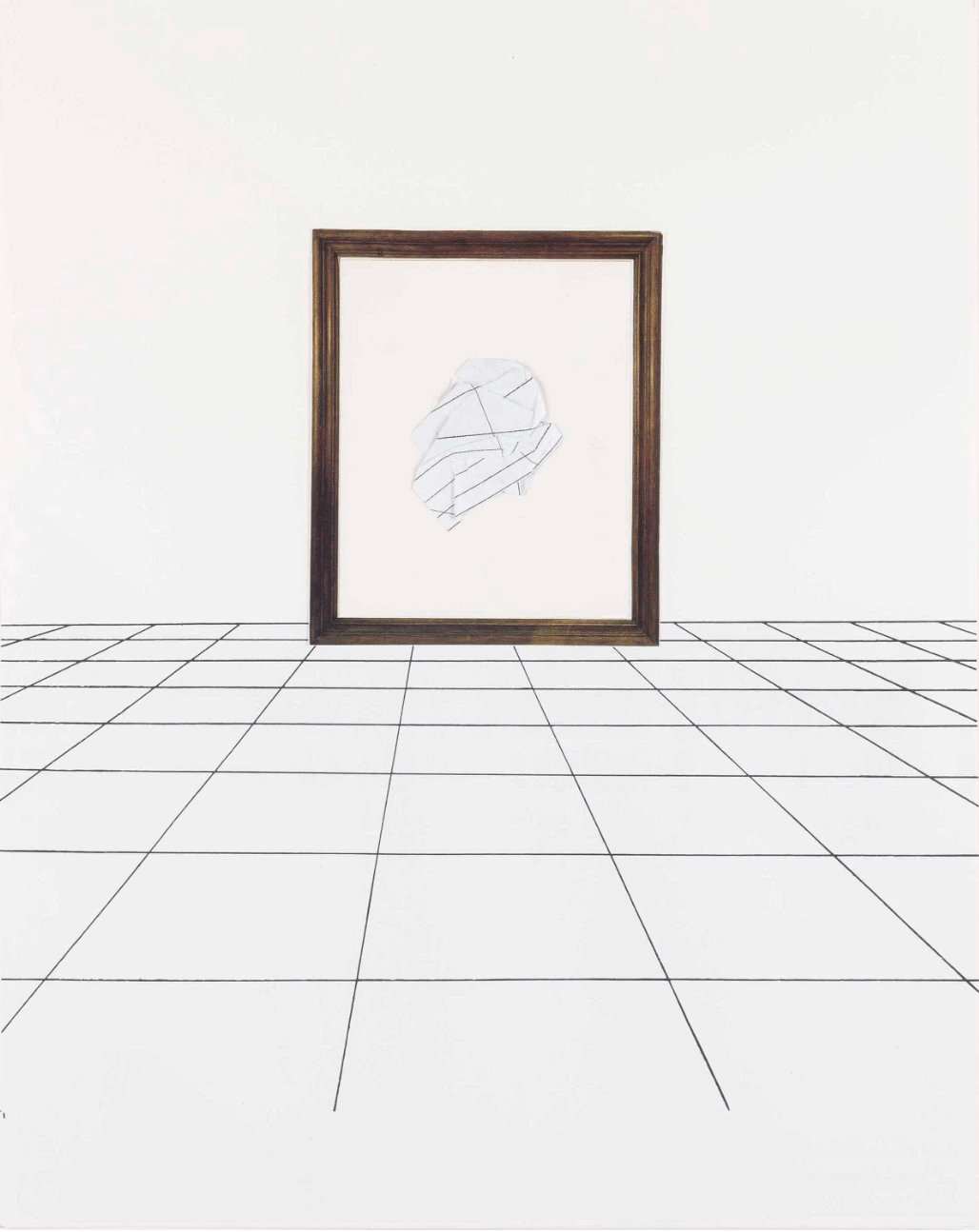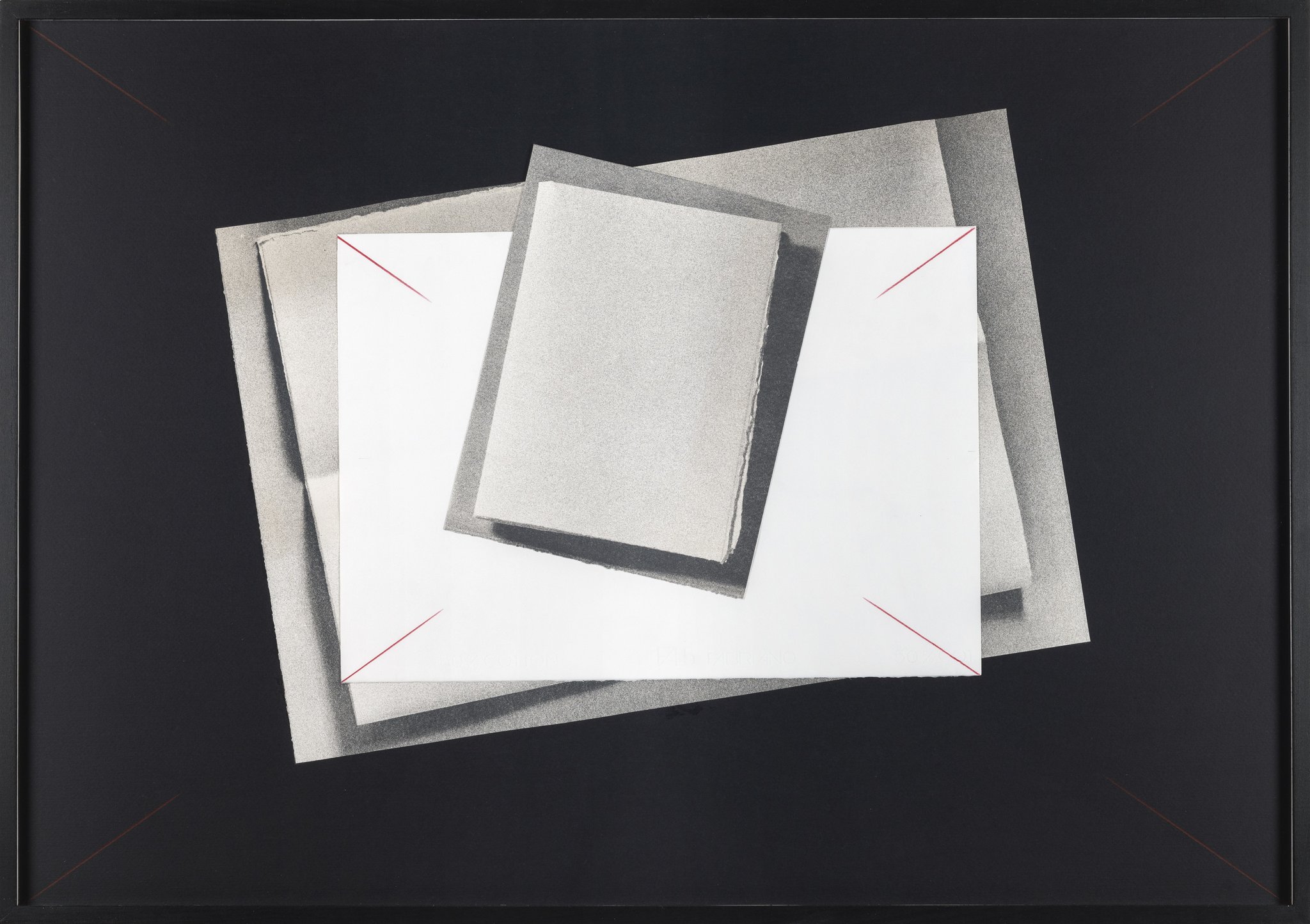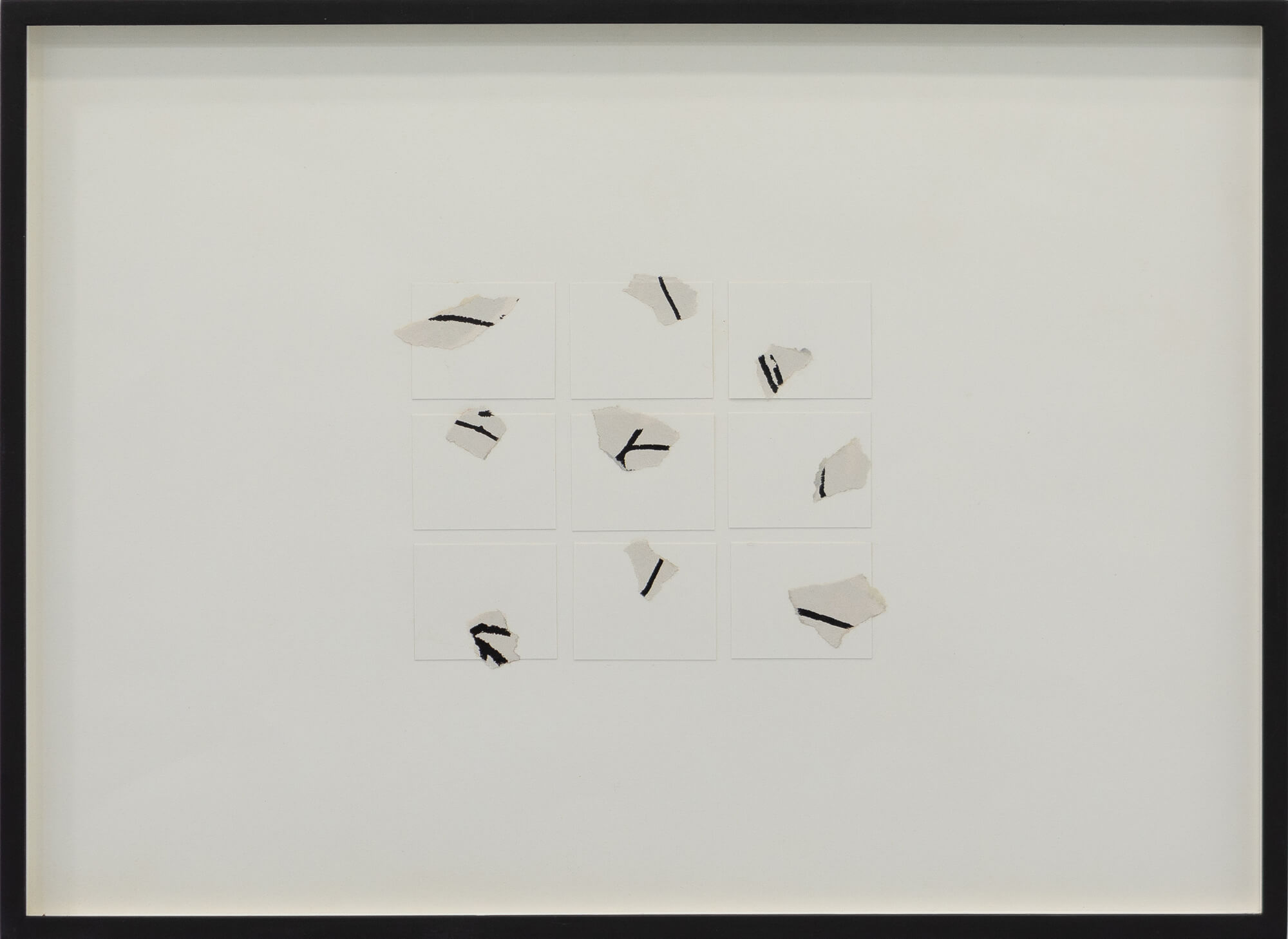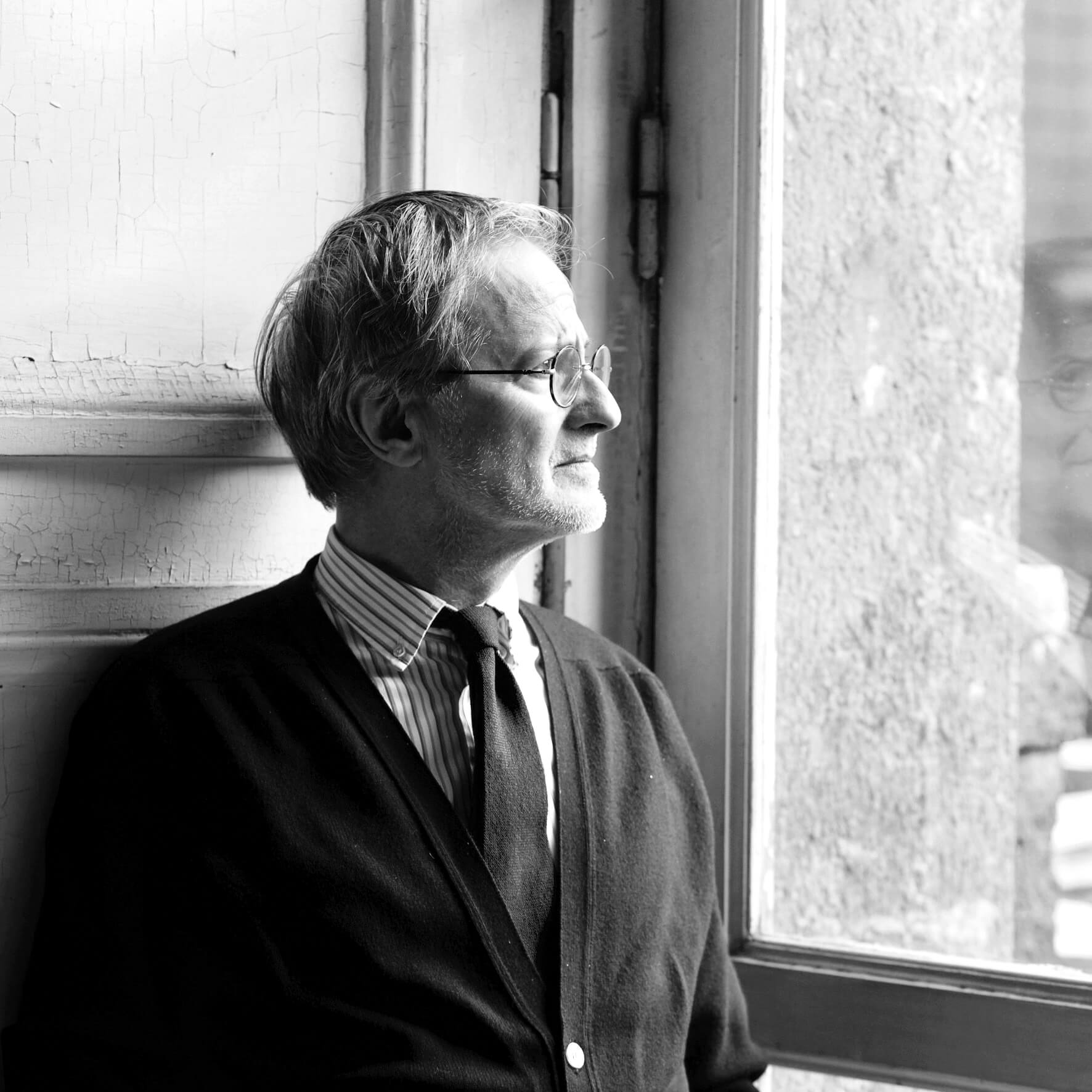
Giulio Paolini (Genoa, 1940)
graduates in 1959; the experiences in the fields of typography and photography are crucial for his training. Often associated with the Arte Povera movement, he distinguishes himself for a more strictly conceptual artistic practice. In 1960, he creates Disegno geometrico, the first work and constant reference of his entire research. The artist maintains a completely autonomous position with respect to the dominant landscape of the mid-1960s; always remaining within the art boundaries and questioning the "actors" of the artistic experience themselves: author, audience, look, spatial framing of the painting, and space of representation. In the 1970s, two lines of research mainly characterized his production: the perspective and the theme of the double. Subsequently, the artist focuses on the exhibition act as an encounter with the work; this moment becomes the opportunity to create dialogue with the environment, underlining the importance of theatricality in his works of art. Recent reflections, in the artist's incessant artistic investigation, focus mainly on the theme of the author and his relationship with the work. From 1969, he creates scenes and costumes for theatre performances; the projects with C. Quartucci and the scenography for two pieces by R. Wagner, 2005, 2007 are particularly significant in this sense. Since the beginning, Paolini accompanies his artistic production with reflections, which, over time, have allowed the publication of artists’ books, anthologies and other publications. After the first solo exhibition of 1964, Galleria La Salita, Rome, Paolini's work is acknowledged in Italy and abroad. The artist exhibits in the most important international galleries and in numerous public spaces including: the Abteiberg Museum, Mönchengladbach; Musée d'Art Moderne de la Ville de Paris; Kunstmuseum, Lucerne; Staatsgalerie, Stuttgart; Padiglione d’Arte Contemporanea, Milan; Museo di Capodimonte, Naples; Musée des Beaux-Arts, Nantes; Palazzo della Ragione, Padua; Museo Archeologico Nazionale, Naples; Palazzo delle Esposizioni, Rome; MACRO, Rome; Museo Poldi Pezzoli, Milan; Center for Italian Modern Art, New York. Among the major anthologies, those organized at Palazzo della Pilotta, Parma, 1976; Nouveau Musée, Villeurbanne, 1984; Galleria Nazionale d’Arte Moderna, Rome, 1988; Neue Galerie am Landesmuseum Joanneum, Graz, 1998; Fondazione Prada, Milan, 2003; Kunstmuseum, Winterthur, 2005 are worth noting. He participates in Venice Biennial, 1970, 1976, 1978, 1980, 1984, 1986, 1993, 1995, 1997, 2013; at the Paris Biennial, 1971, 1973; at Rome Quadriennale, 1973; at Documenta, Kassel, 1972, 1977, 1982, 1992; at the São Paulo Art Biennial, 1973, with Honorable Mention, and at the Sydney Biennial, 1979. The numerous group exhibitions include exhibitions related to Arte Povera and the main international exhibitions of Italian art. He receives several prizes and awards, and currently his work is represented in international public collections. The most significant monographic publications dedicated to the artist are made for the solo exhibitions of Parma (1976), Lucerna (1981), Ravenna (1985), Stuttgart (1986), Graz (1998) and Milan (2003). In 1990, F. Poli curates a monograph on the artist; in 1995 Giulio Paolini. La voce del pittore – Scritti e interviste 1965- 1995 is published, a collection of writings and interviews by M. Disch; in 2008 Giulio Paolini. Catalogo ragionato 1960-1999 is published in two volumes collecting the works created from 1960 to 1999. Created in 2004, today the Fondazione Giulio and Anna Paolini continues in the work of documenting and mediating the activity of the artist.
In 2022 he presents his solo show Quando è il presente at Museo Novecento in Florence curated by Bettina Della Casa and Sergio Risaliti; he also takes part in the group show Renverser ses jeux at Jeu de Paume, Paris.
In 2022 Giulio Paolini is the winner of Praemium Imperiale in the "painting" category.
Studio G7 has dedicated to the artist the solo Collezione, 1974; Mimesis, 1975; Cythere, 1984; Opere grafiche, 2000; Immacolata Concezione. Senza titolo/ senza autore, 2008; Giulio Paolini, opera grafica e collage, 2014; the double solo with Jacopo Mazzonelli ISORHYTHM, 2019, curated by Bettina Della Casa.
